-An interview by Madhur Manohar and Aastha Mehta (MAGAZINE TEAM, IVSA-INDIA)
Meet Dr. Kasturi Bhadsavle, M.V.Sc. Senior Veterinary Ophthalmic Surgeon, Founder of the only purely Veterinary Opthalmology clinic in India- The Eye Vet.
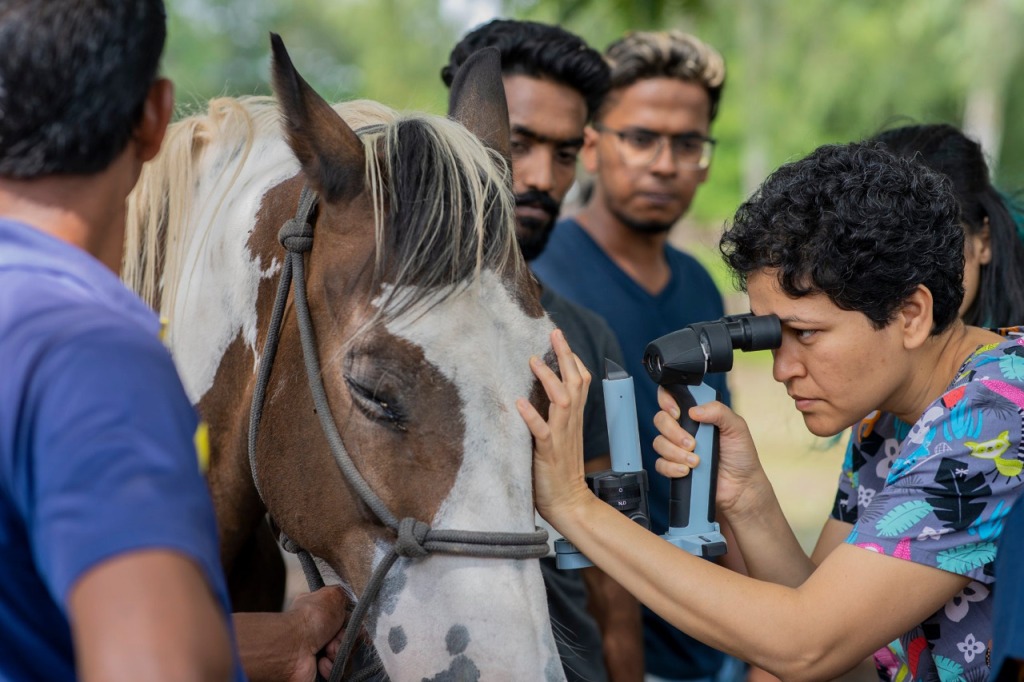
Raised on a farm full of animals and birds, Dr. Kasturi decided to be a vet early on. After graduating from Bombay veterinary college in the year 2004, she worked at the racecourse to gain more experience with horses. Dr. Kasturi always aspired to be a surgeon and hence she joined a master’s program in veterinary surgery at Bombay veterinary college in 2004. During her masters, she developed a keen interest in veterinary ophthalmology. At the time there was no vet working in ophthalmology and hence a lot of animals were left with no option but to go blind. This inspired Dr. Kasturi to pursue this field further. With the help of a renowned Human ophthalmologist, she completed her thesis is cataract surgery in dogs, and never looked back.
She trained further in veterinary ophthalmology in Israel and the USA during the year 2007. In 2009 Dr. Kasturi migrated to Australia where she practiced in general practice for four years. After having two beautiful boys, she left her job and started her own ophthalmic consultation practice in Melbourne Australia. Dr. Kasturi always had a strong attraction towards home and wanted to offer her expertise to owners in India. After much thought and preparation, she moved back home to India in 2017. Dr. Kasturi initially practiced as a consulting veterinary ophthalmologist attached to several clinics in Mumbai and Pune. In late 2018 she decided to establish the Eye Vet, India’s first speciality veterinary ophthalmology practice. The Eye Vet Mumbai opened in March or 2019, followed by the Eye Vet Pune. The clinics are open 6 days a week and offer world class consultation / surgical services to patients all across India.
BIO REFERENCE: http://www.theeyevet.in
Q1. You have travelled around the globe to acquire your degrees and expertise, after experiencing both sides of the coin, what is something you believe the western practice can learn and emulate from the way India practises veterinary medicine and surgery?
I have done my masters and internship in India. Therefore I had some experience of Indian practice before I ventured outside. My first thought when I went outside was actually being impressed by the way surgery and medicine is practised outside India because of how they approach a case and how methodical they are. But when I look back and think about it now, I realise that my experience in India helped me a certain way. When we practice in rural India for internships (we’ve visited extreme rural parts of Kolhapur), not a lot of diagnostic tests are available or sometimes the owners cannot afford it. But all the vets there are still doing an excellent job at saving the animals, just by using their instincts. That’s something commendable! You tend to develop the skills of understanding and trying to solve the case on your own. For instance, if you get a sick dog, in modern practice, you would immediately run a blood test. That is going to give us a primary diagnosis of say, kidney failure or liver failure, or anything else, whereas where you don’t have that available or when the owners can’t afford it, then you tend to develop these extra senses and you try to look for certain signs without doing these tests. To give you an example, when I was working with Dr. Ron Ofri, professor of ophthalmology at Koret school of veterinary medicine, Israel. He is also a co-author of Slatter’s Fundamentals of Veterinary Ophthalmology book. He was treating me as one of his students and he was taking a test. He showed us a picture of a snake, with a retained spectacle. A retained spectacle is a condition wherein the snake sheds its old skin and the transparent shell which covers their eye (they don’t have an eyelid) known as the spectacle is retained. That shell has to come off, if it doesn’t it leaves a gap between the new shell and the old spectacle and it can lead to an infection. He basically asked us how we would treat this. One of the students suggested anaesthetising the snake and gently removing it with a forceps. He proceeded to ask me how I would treat it, and I said I would just put the snake in water. He was so impressed! He said he was going to increase the humidity of the tank instead. It’s the same thing, you put the snake in water instead of having a humidifier. When you have a lot of equipment and a lot of diagnostic support, sometimes you rely on it too much. It’s definitely good to have that, I wouldn’t want to practice without it of course. But it’s good that at least I have the skill, that in case of things being unavailable, I can actually go back to my old experience and use it. There was this one time I assisted a cataract surgery in a buffalo in an absolutely rural setting. Dr. Agashe, who is a human ophthalmologist, was performing the surgery. We did not have enough light, so we got a mirror and used it to focus the sunlight. It was bizarre, you do a lot of Jugaad, it’s not the perfect practice, but it doesn’t stop you.
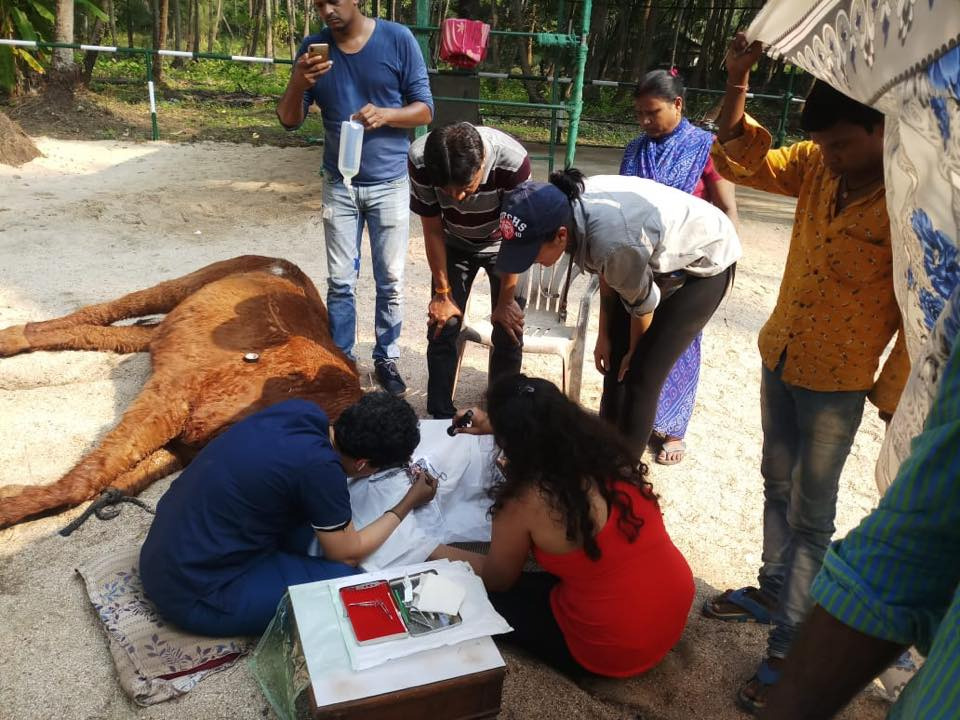
Q2. And on that note, what advancements in technology (in regards to Veterinary Ophthalmology) would you like to see in our country?
Veterinary ophthalmology is not just performing a cataract surgery or patching up corneal ulcers. There’s a lot of genetics behind it as well. Outside India there is a lot of research work that goes on, renowned veterinary ophthalmologists are working alongside human ophthalmologists to help improve gene therapy and immunotherapy for genetic blindness or curing retinal degeneration in humans. This is extremely top notch research that goes on. We should start with including better ophthalmology programmes in our curriculum in veterinary schools, there should be much better research projects for phd or masters that need to be carried out. There are many preventable hereditary and genetic problems that lead to ophthalmic complications in dogs such as retinal degenerations, primary glaucoma, etc. Outside India, there are programmes where the breeders are required to get karyotypes and genetic tests done for a variety of conditions. We see so many faulty breeds these days, such as the popular Husky breed, that can go blind within a year due to primary glaucoma. The breed ChowChow have severe facial fold problems, breeds like Labradors and cocker spaniels get retinal degenerations at the age of 5 or 6 years that cause complete blindness. This is completely detectable and preventable! It is important to not only get these testing kits but also raise awareness in India, which is something our organisation plans on doing.
Regarding modern advancements, our clinic has everything that we need. We perform everything from corneal ulcers to cataract surgery, the only thing missing at this stage is a retinal surgery but we will definitely get there. We plan on opening veterinary ophthalmology clinics all over India (in all the metro cities). We will be training all these different ophthalmologists and try to bring about that change. But it will be great if the change starts happening at an institutional level as well. We plan to hire at least 50 veterinary surgeons and start training them. We already have Dr. David Maggs, professor of ophthalmology at UC Davis and is the main author of Slatter’s Fundamentals of Veterinary Ophthalmology, and Dr. Michael Davidson who is the Head Of Department of Ophthalmology at NCSU on our advisory committee and are designing the curriculum for us. They will be delivering these lectures and training our residents as well. It’s going to be pretty standard and at par with western education.
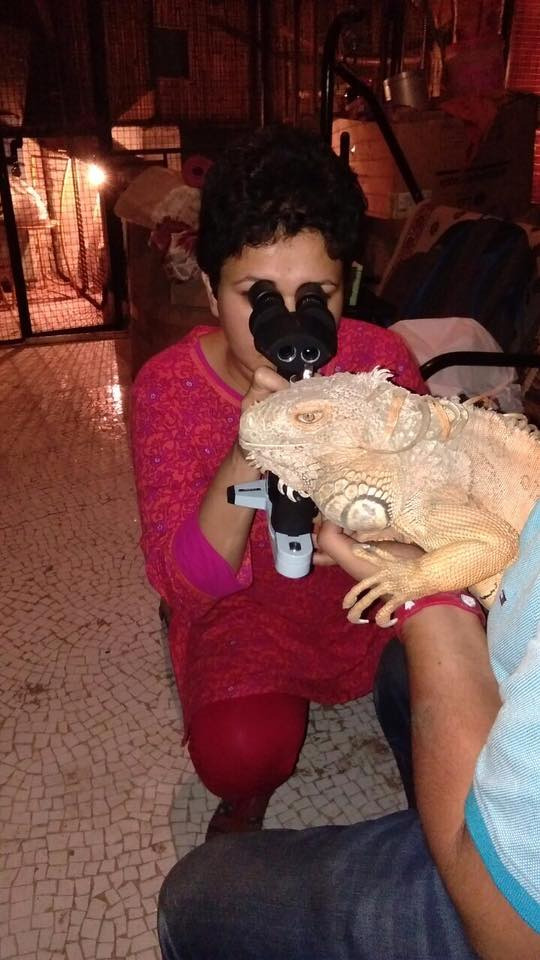
Q3. Here’s the question almost every student has asked, how does one become a veterinary ophthalmologist seeing that specialisation is still something Indian veterinarians are only just being exposed to?
Veterinary ophthalmology is a highly sought after specialty outside india. There is relatively low emergency, requiring highly skilled personnels. There are very few vet ophthalmologists across the globe and pay is much better than other specialties. To become a vet ophthalmologist you need to do a four year residency course and then pass an exam. Even for an American graduate, to get accepted into a vet ophthalmology residency is tough. Most of these students start writing or co-authoring papers since they’re in their second academic year, or they assist in some sort of research work. They are extremely motivated and have letters of recommendations and start planning for their residency from the first year itself. To compete with that kind of candidate is very tough for us. When we are in our first year we have no clue about what we want to do. Most of the time foriegn universities don’t really accept a lot of foriegn students, so the competition is quite cut throat. Getting into residency is really tough. However, as good news, we are actually starting a course in veterinary ophthalmology, offering the specialisation here and we’re actually bringing world class professors to India, instead of us going to them. Getting residency at UC Davis or NCSU is very very tough. Those professors are teaching the residents that we have at the moment. It is a great opportunity, I wish I had that opportunity but it’s now available here, so you can become a veterinary ophthalmologist by working at the Eyevet.
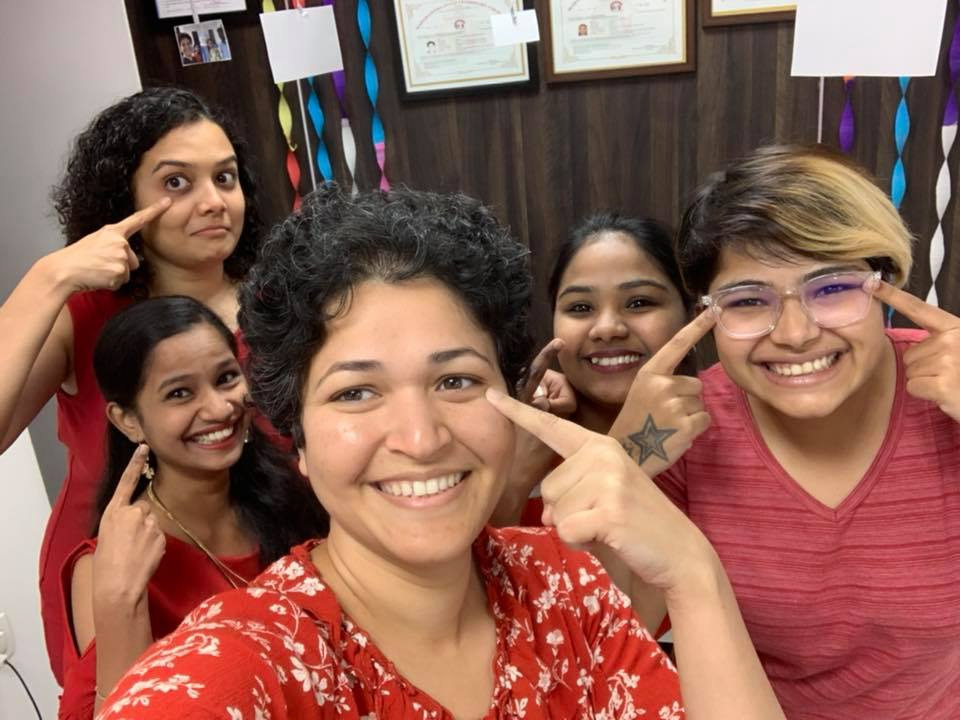
Q4. What is a piece of advice you wish you could tell your younger self before you started your tumultuous voyage into veterinary ophthalmology?
There’s so much that you can change. One of the things is being focused on doing the residency. If I had known that I had to take a certain path I probably would’ve done more externships or some meaningful research/ co-authored research, published papers, just to increase my chances of getting into residency.
Q5. Could you describe any one of your most rewarding experiences as a vet?
I remember once, I was going to the farm and I saw a horse with a foot injury on a road. If the horses in places like Matheran get injured and it is not possible for the owners to treat them, they simply abandon them. I took the horse back to the farm, nursed him back to health. Since I was interning with Dr. Phiroz Khambatta at the race course that time, I got a shoe made for him. He lived a healthy and full life for a year and a half and peacefully passed away at the farm. I remember another incident that happened recently. My sister was driving and was on her way to the farm. It was the season of hot summer and she spotted a green chameleon in the middle of the road. She went and checked up on him, his eyes were shut closed. If left there, it would surely die. So she got it back with her and I checked it. We treated its eyes, and it could successfully open them. We were overjoyed and left the chameleon back in the wild, where it had come from. The next day however, it was back at the same place with its eyes shut again! We got it back home. I noticed a few lesions on its skin. We ran a diagnostic test and it turned out he had a fungal infection (which could be fatal if left untreated) that was causing his eyes to shut. We were able to treat him completely before leaving him back! It was a very satisfying experience.
Q6. Growing up on a farm surrounded by animals is an experience most city-dwellers do not have the privilege of, would you like to share any fun anecdotes with us?
On the farm, we had cattle, horses, etc. Snakes were very common, being on the farm, there were always snakes around, and scorpions. We were not really scared of any of those. My dad used to give lectures to schools and he used to use us as props, he gave us the non venomous snakes to hold, just so that students would feel comfortable. Sometimes he used to let us stand in the middle and let the snake around us, and move around our feet. The lesson used to be that if you stand really still, the snakes won’t really harm you; they’ll just move around. Things like these reduce your fear or your anxiety. I use that in surgery now as well. If I see something going wrong, or something that is not scheduled happens, instead of panicking I relax and take a step back, look at it and then I always find a better solution. I use that for almost everything. If there is a panicky situation, my reaction to it is usually calming myself down and trying to find a better solution. It comes from these past experiences. When you’re exposed to different types of elements, you’re not afraid of anything. For example; the weather. The monsoons used to be very harsh. When there’s rain pouring down and you’re in a secured building, it’s a different feeling as compared to when you are trying to get home and are stuck on a road which is deserted and without streetlights. You get through that and nothing can surprise you. Our post school games used to consist of exploring different parts of the river (there’s a beautiful river in Neral), making friends with the natives who catch fish, we would go and check what fish they’ve got, different types of eels, so it was a different world. It was an amazing childhood and I’m very very glad for that.
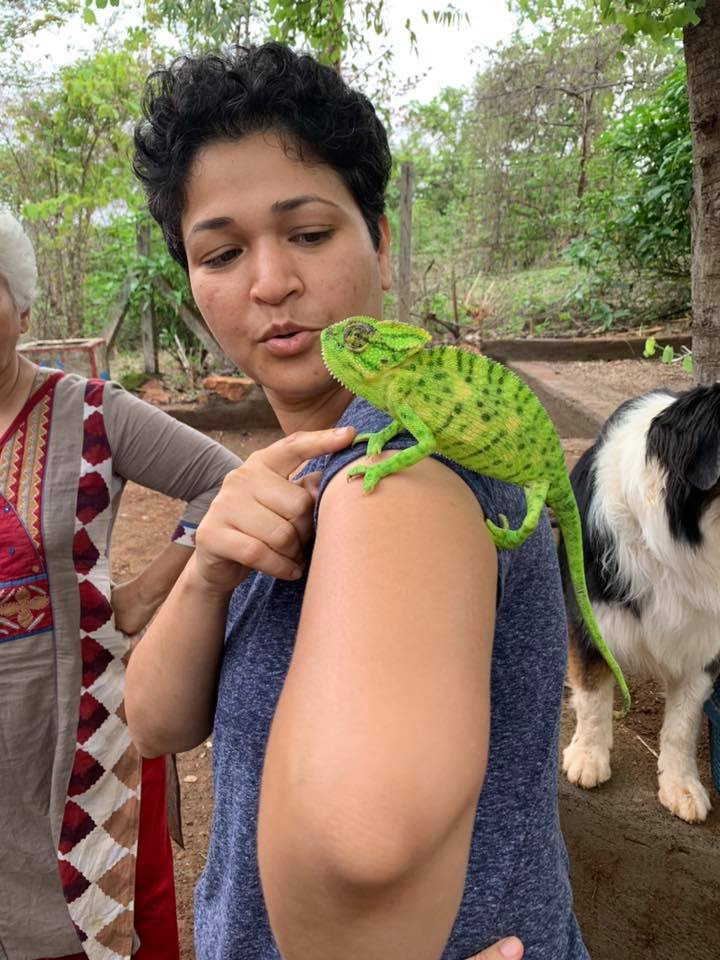
Q7. What drew you specifically to practice Ophthalmology?
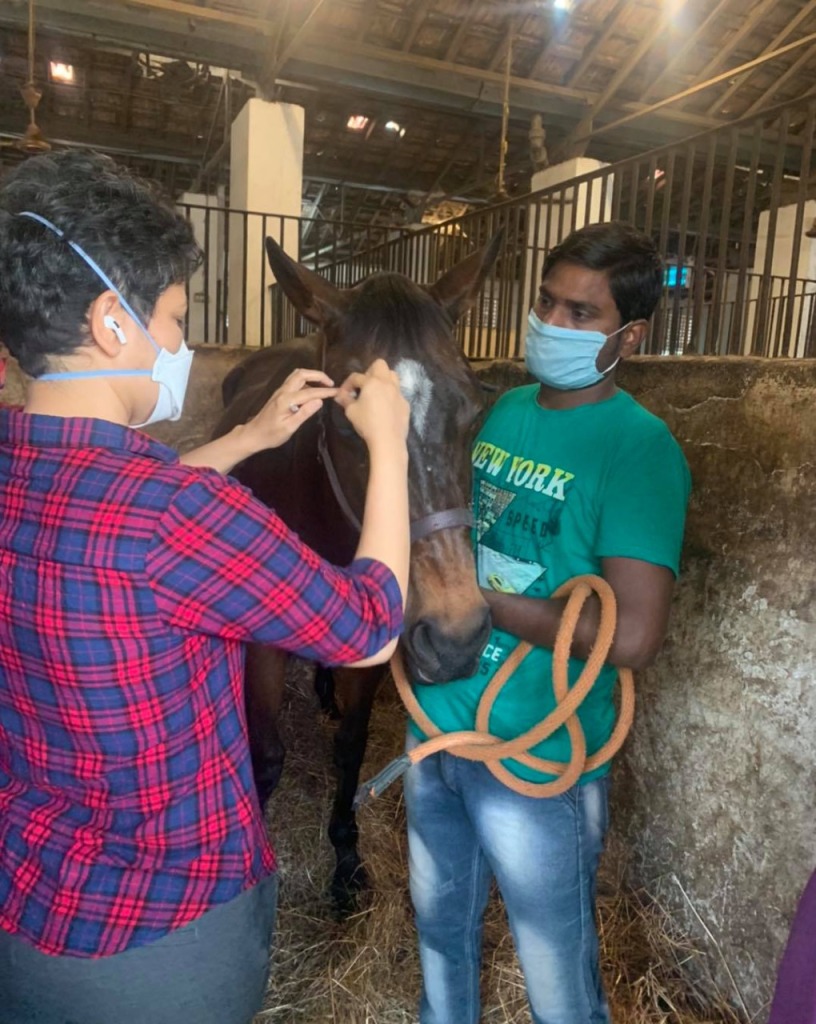
Q8. Since you were the first in our country to take a leap and pursue specialisation in ophthalmology, what advice would you give students wanting to pursue a slightly different career path that hasn’t been explored before? What are the specializations you hope young graduates can further in India which may or may not be flourishing abroad?
My advice for those looking to get into the surgical field is to definitely do your masters in India, don’t just assume you’ll be accepted in a residency programme overseas. Having an MVSC increases your chances of getting a residency. It also makes a difference for those looking to move abroad later in life (before giving the ECFVG and applying for jobs). It is important to choose a suitable topic for your thesis work, for example, if you are interested in neurosurgery, make that the aim of your research and study it thoroughly. There are many externships and observership programmes available if you cannot get an internship. There is much to gain from simply observing and networking with such renowned vets and specialists. You may not receive a certificate documenting your time spent there, but ultimately it is the confidence you gain while interacting and the exposure to their way of thinking that makes it a valuable experience. You should keep applying for internships, residencies or observerships in any country having good veterinary practice. Usually, private practices are too busy to entertain observers. Getting out there and gaining exposure is important and it also adds to your CV. As for the specializations: Dermatology, endocrinology, neurosurgery, cardiac surgery are the absolute need of the hour. Sure we have cardiologists but when I visited NCSU in 2007 , they were already using human donated pacemakers for pets. These pacemakers were donated from the deceased thus lowering the price of acquiring one.
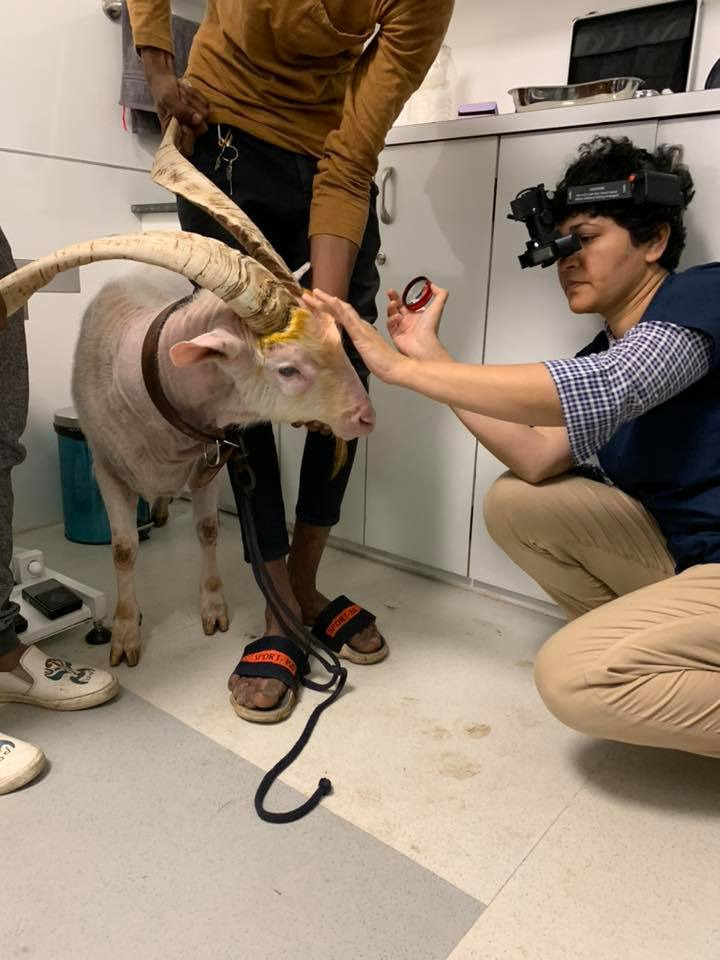
Q.9 The COVID-19 pandemic has changed all of our lives. Is there something that you adopted in your daily routine or practice during lockdown that you will carry forward in the future, say online consultations?
Yes, so we’ve actually opened ourselves up for online consultations. Initially, we were hesitant to do so but we were being approached by clients and veterinarians from all over India for ophthalmic consults. Prior to this, we would just reply to queries via text messages which was not very practical. Once we started formal video call consults, I think we successfully diagnosed many cases of ocular bleeds, ulcers, even retinal detachments and were able to intervene just in time for many of these animals, to help them heal. We get a lot of cases from Kolkata, Assam, Ahmedabad, Hyderabad, Bangalore etc. People are willing to fly down with their pets to bring them to our clinics all the way from Chennai, Haridwar and Kolkata even during the stringent COVID-19 restrictions just to get them treated and operated by us. So this has really helped us broaden our reach over India and help those requiring our services.
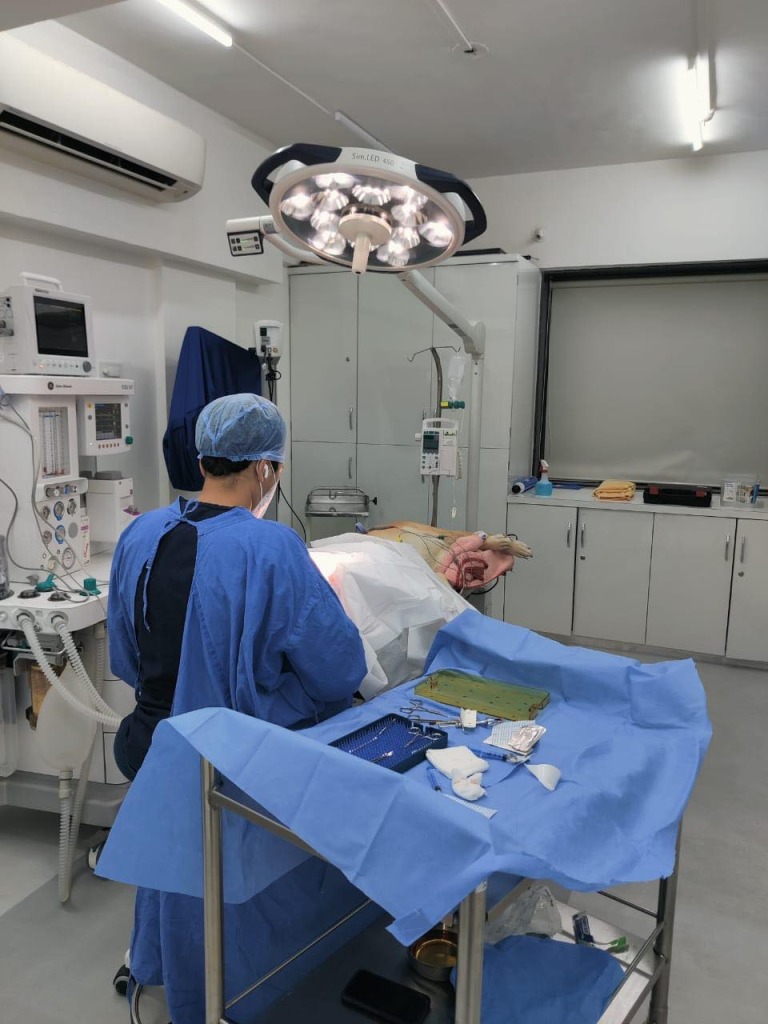
Q.10 You have expanded your practice over two clinics, one in the city of Mumbai and the other in Pune. What can you say about the trials and tribulations of starting and handling two clinics?
Yes indeed! We are actually planning to go all across India. When I moved back to India, people were telling me that a purely ophthalmic clinic would not be successful here, and definitely not in Pune. The only place it may just work was in Mumbai. It was initially only a trial run, with me driving around to different veterinary clinics across Mumbai, with all my equipment stored in the trunk of my car. These vets would gather ophthalmic cases, keep them aside for me and I would do consults at their clinics. This was obviously very tiring and not an effective method to do follow-ups on each case. It was impossible to do post-op checks, rechecks, and keep tabs on the patient’s conditions.
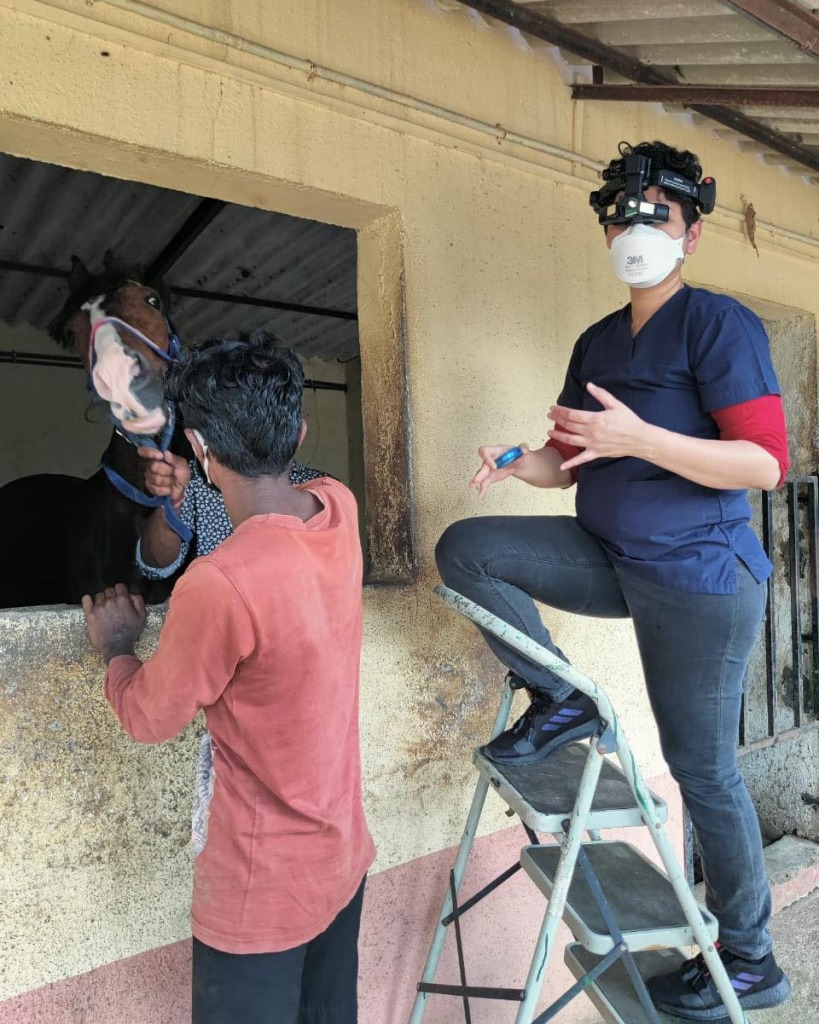
Additionally, I was a one-woman army; I was my own accountant, receptionist and thankfully had my driver to drive me through Mumbai’s traffic. It was exhausting, and I’m glad I stopped when I did. When I decided to set up my clinics, I made sure not to invest all my life savings into it. My friend and business partner is my investor and advisor for all business dealings such as expansion. It is important to have someone pushing you forward and guiding you to do better.
When we started, we started two clinics at the same time. We hired the best talent, the best veterinary surgeons and paid them the best salary. We also outsourced our accounting to a CA firm and sought the help we required in the daily running of a clinic. It is not possible to do everything yourself and try to save money along the way. People would advise me to budget with equipment and not go for the best machines as there is no return on investment. They said you cannot recover the cost of the equipment by charging the Indian client a higher fee. This I couldn’t do. In my mind, I thought if I buy a substandard machine due to which my surgeries start failing, I would lose my clients. You need to diversify and assign duties to people. That’s the way you can grow. Right now I have 6 veterinary surgeons training to be veterinary ophthalmologists. I visit the Mumbai clinic two days a week and see it’s running smoothly. I have trained the vets for less than a year now and they can already handle cases like ruptured corneal ulcers themselves. I believe in training students and disseminating knowledge, it helps the other person bloom and has made my burden lighter in the sense that if I’m at my Pune clinic I will not have to leave everything and rush to Mumbai for a case. It’s not that strenuous to run two clinics simultaneously anymore, distributing the workload is key.
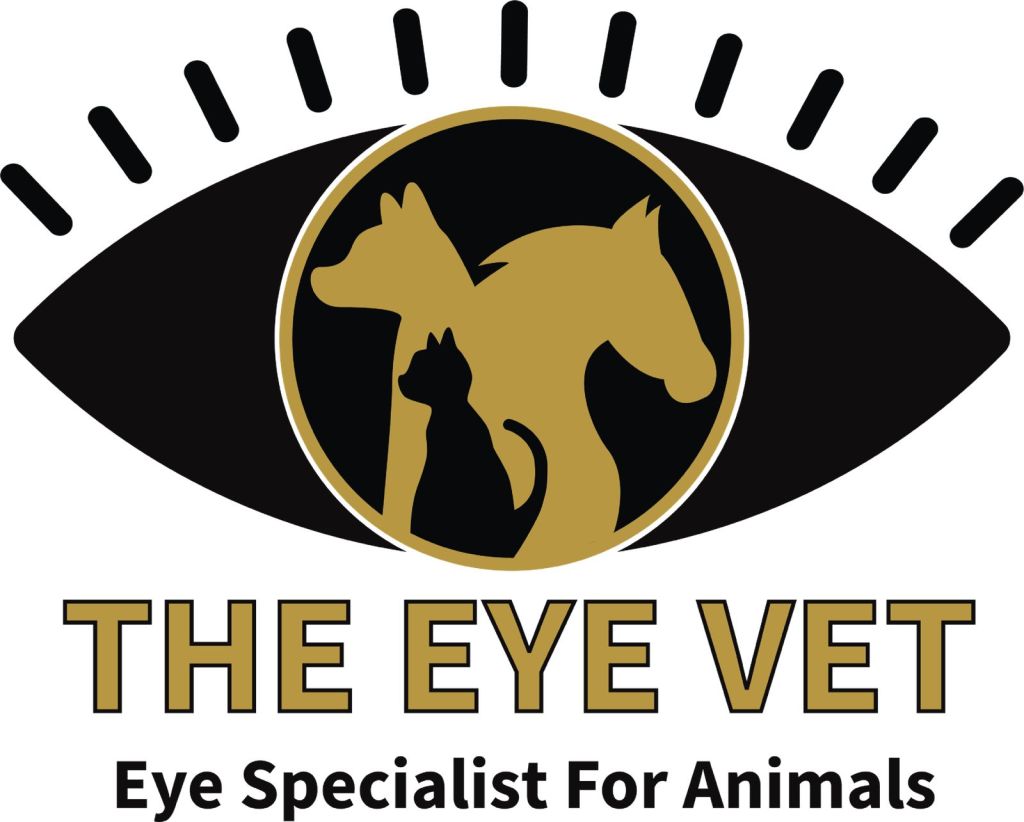
CONTACT DETAILS:
📞 (+91) 9607927178, (+91) 2067525722
📬 Kasturib@theeyevet.in
🌐 https://instagram.com/theeyevet?utm_medium=copy_link